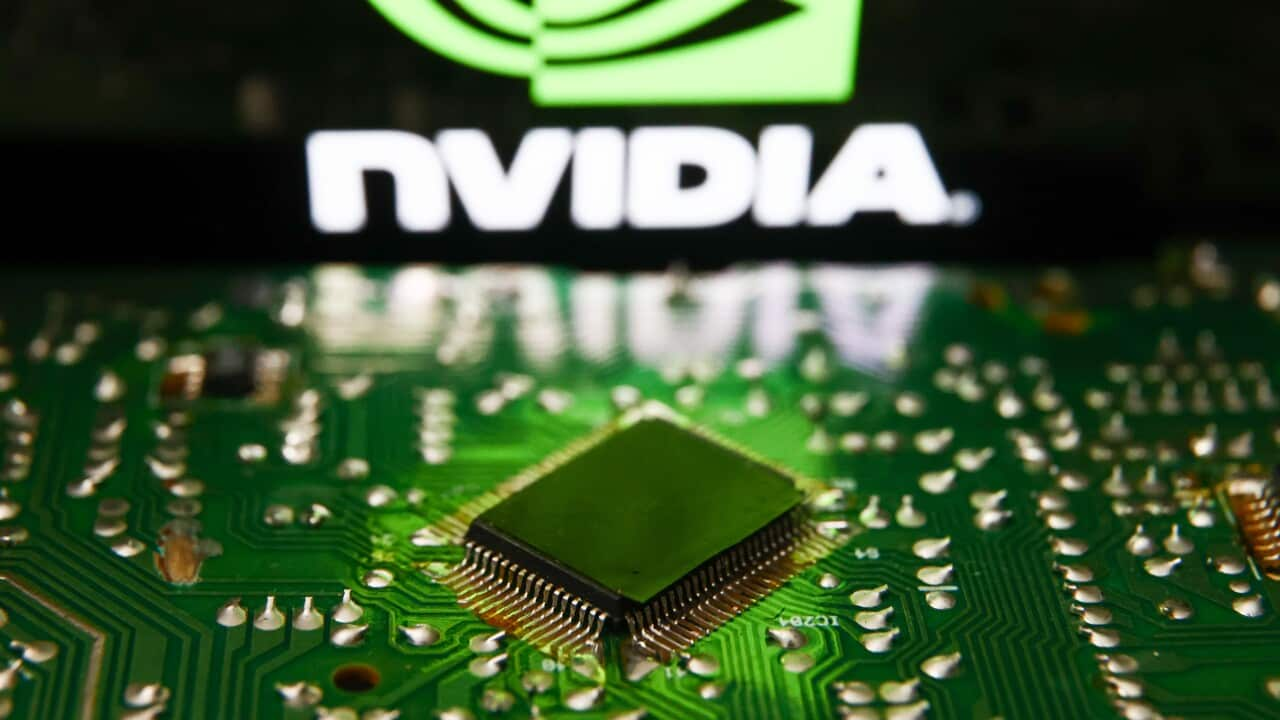Key Points
- Silicon Valley tech company Nvidia was founded in the 1990s and has experienced explosive growth in recent years.
- After briefly overtaking Apple as the world's most valuable company earlier this year, it has returned to the spot.
- It's an American business but has connections to Taiwan through its CEO and its manufacturing base.
For years, Apple and Microsoft had been the two most valuable companies in the world. Now, repeating a milestone it briefly reached earlier this year, Nvidia is back on top.
The American technology corporation held the title of the world's biggest company back in June, with a value of more than $3 trillion. It was a short-lived moment in the sun; lasting only a day.
On Tuesday, it reclaimed that position. The company's market capitalisation rose nearly 3 per cent, closing at $3.43 trillion, beating out Apple's $3.38 trillion. Shares in the company rose 2.9 per cent to $139.93.
The return to the throne caps a soaring rise in the company's value since 2022, but for the average person, Nvidia is a name that has seemingly appeared out of nowhere.
The company, which makes specialised microchips, was not well known just a couple of years ago.
So where did the company start out, how does it make its money and who is its charismatic leader?

While Apple founder Steve Jobs was known for his turtle necks, Nvidia CEO Jensen Huang often makes presentations wearing a leather jacket. Source: Getty / Justin Sullivan
From roadside diner to trillion-dollar company
Broadly speaking, the value of Nvidia shares has soared by more than 3,000 per cent since the company was floated in 1999.
Much of this growth occurred in recent years, with the company's value increasing from $1 trillion in May of 2023 to $2 trillion in February.
At the start of June, the company’s share price surged once more, bringing its total valuation to $3 trillion — putting it ahead of Apple and second only to Microsoft.
However, the tech giant was no overnight success story.
The company was formed in 1993, and it has been widely reported that it began during a meeting in a booth at an American roadside diner called Denny’s.
Making it big from microchips
Nvidia sells graphic processing units and microchips and works across artificial intelligence, gaming, creative design, autonomous vehicles, robotics and high-speed processing of data and complex calculations.
Demand for Nvidia’s top-of-the-line processors has this year far outstripped supply as Microsoft, Meta Platforms and Google-owner Alphabet race to build out their AI computing capabilities and dominate the emerging technology.
Virtually all artificial intelligence applications, including OpenAI's ChatGPT, rely on Nvidia's high-end chips, which are manufactured in Taiwan.

Nvidia technology is part of many of the devices people around the world use regularly. Source: Getty / troyek
The company's hardware is in Tesla cars, its cloud-based technology helped kick off the work-from-home revolution during the pandemic and powered the transformation of modern gaming.
Client portfolio manager at Zacks Investment Management Brian Mulberry said Nvidia had been able to "catch wave upon wave of growth, beginning with gaming demand, then crypto and now AI".
"They have been able to perfectly match innovation with demand and that equals explosive growth," he said.
Charismatic chief executive
The company's co-founder and current chief executive Jensen Huang is American-Taiwanese, having moved to the United States with his parents as a young child.
He once worked as a dishwasher at Denny's (the same restaurant chain at which the company was reportedly founded), before qualifying as an electrical engineer and working at other tech companies.
Huang, who is often photographed wearing a leather jacket, has led the company for three decades and is one of the 20 richest people in the world, according to Forbes magazine.

The leadership style of Jensen Huang has earned him praise from his workforce. Source: Getty / Gene Wang
Huang was the subject of wall-to-wall coverage on Taiwanese television when he visited Taipei for a tech trade fair recently.
He also stirred controversy during his trip by referring to the self-governed island as a country, rather than a part of China, as is the
With additional reporting by Reuters.









